- Головна
- Готові шкільні презентації
- Презентація на тему «Jackson Pollock» (варіант 2)
Презентація на тему «Jackson Pollock» (варіант 2)
310
Слайд #1
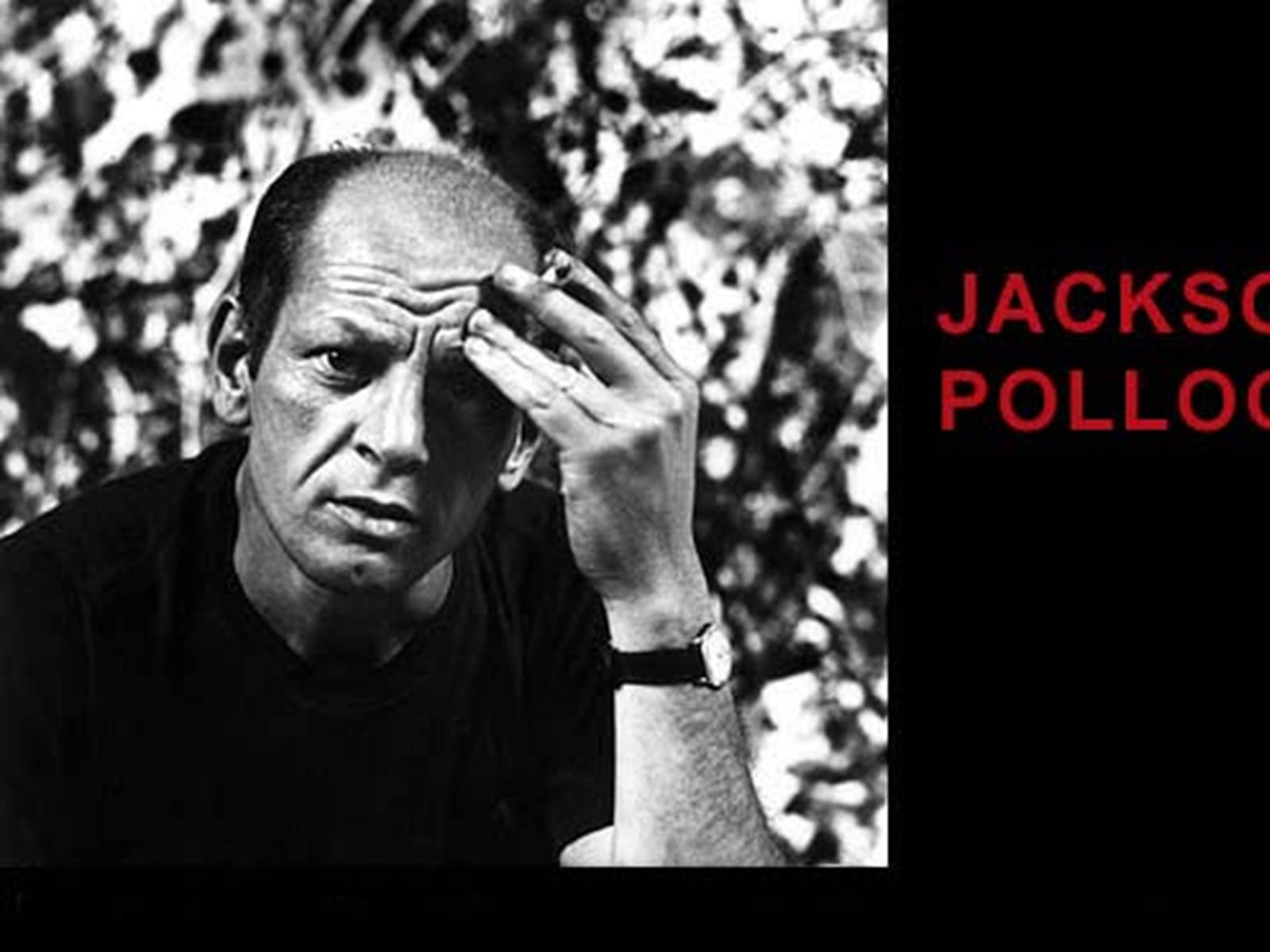
Слайд #2
Born-28 January, 1912
Birthplace-Cody, Wyoming
Died- 11 August, 1956(automobile crash)
Best Known As- The abstract painter who splattered his canvases.
Birthplace-Cody, Wyoming
Died- 11 August, 1956(automobile crash)
Best Known As- The abstract painter who splattered his canvases.
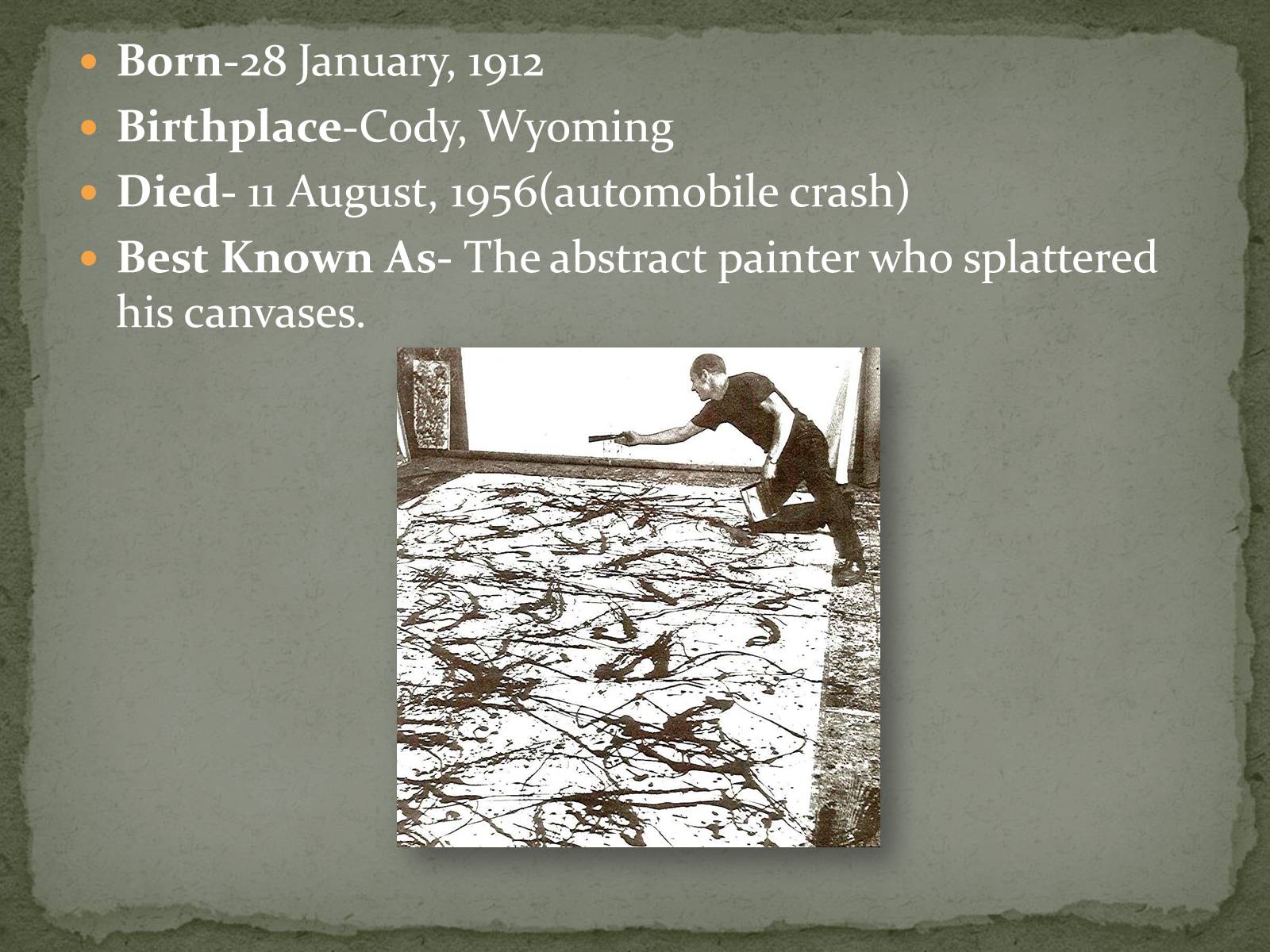
Слайд #3
Jackson Pollock spent his childhood in Arizona and California. Largely through the influence of his oldest brother, he became interested in art. Between 1925 and 1929 he attended Manual High School in Los Angeles where he learnt sculpture and painting.
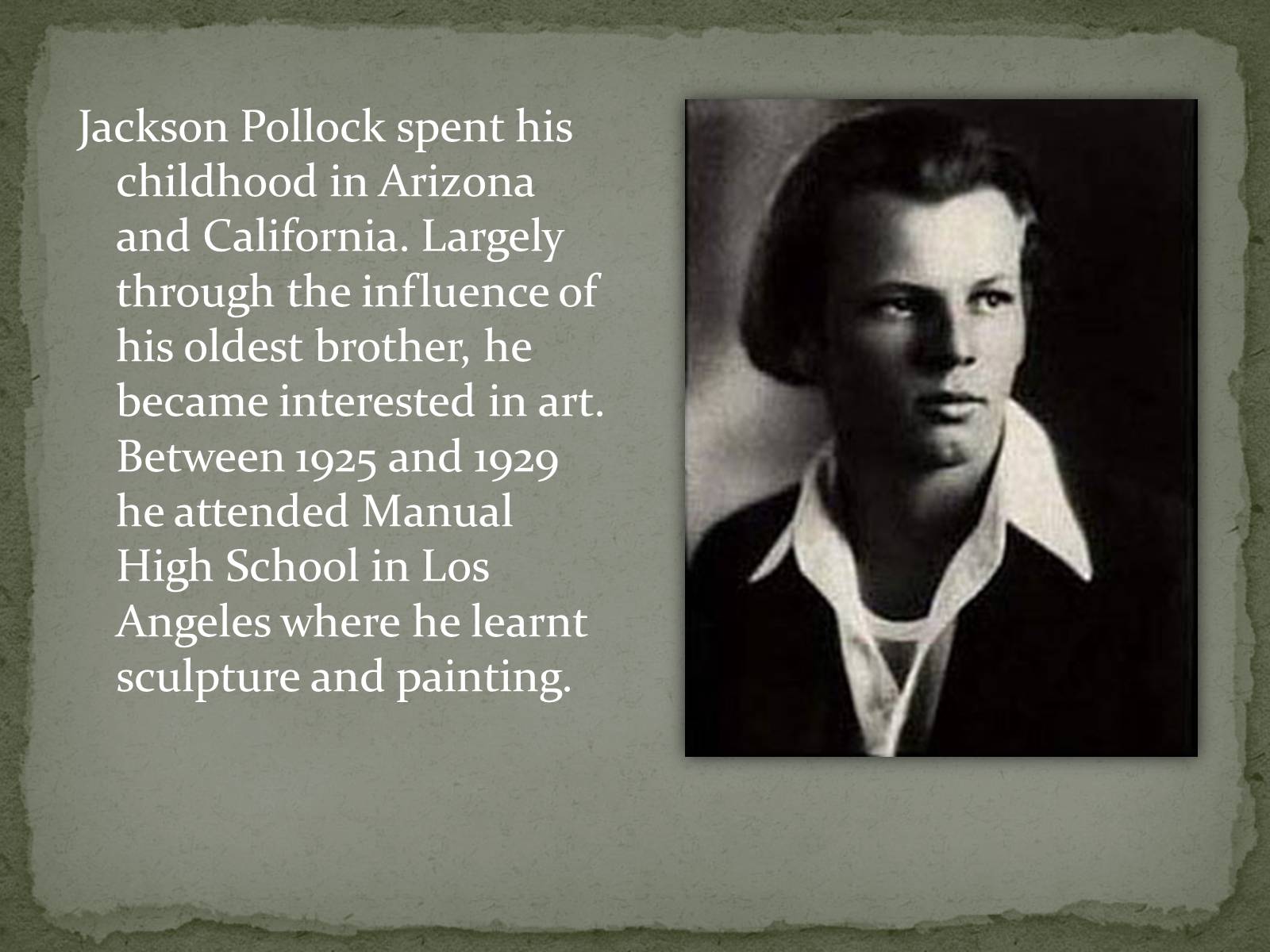
Слайд #4
In 1929 Pollock moved to New York to study under Thomas Hart Benton at the Art Students League. He was soon a Benton family intimate,taking hard-drinking Benton as a role model,artistically and behaviorally.Soon he began suffering from alcoholism and started undergoing psychiatric treatment in the late 1930th. He had a nervous breakdown in 1938 and was hospitalized.
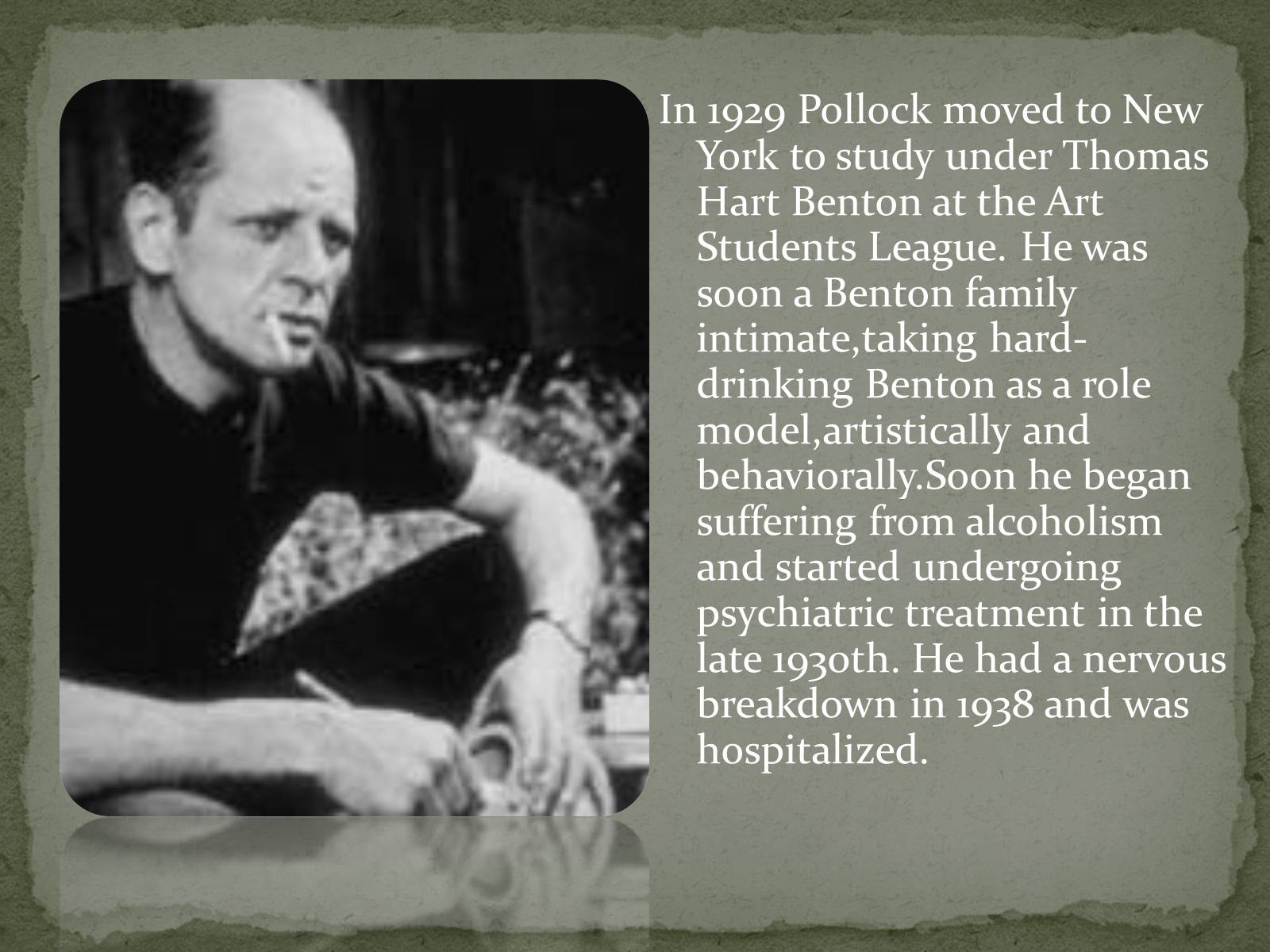
Слайд #5
In 1940 he enjoyed his first New York exhibition – a group show which also included works by Willem de Kooning and Lee Krasner. Here Pollock met Lee Krasner and they married in 1944.
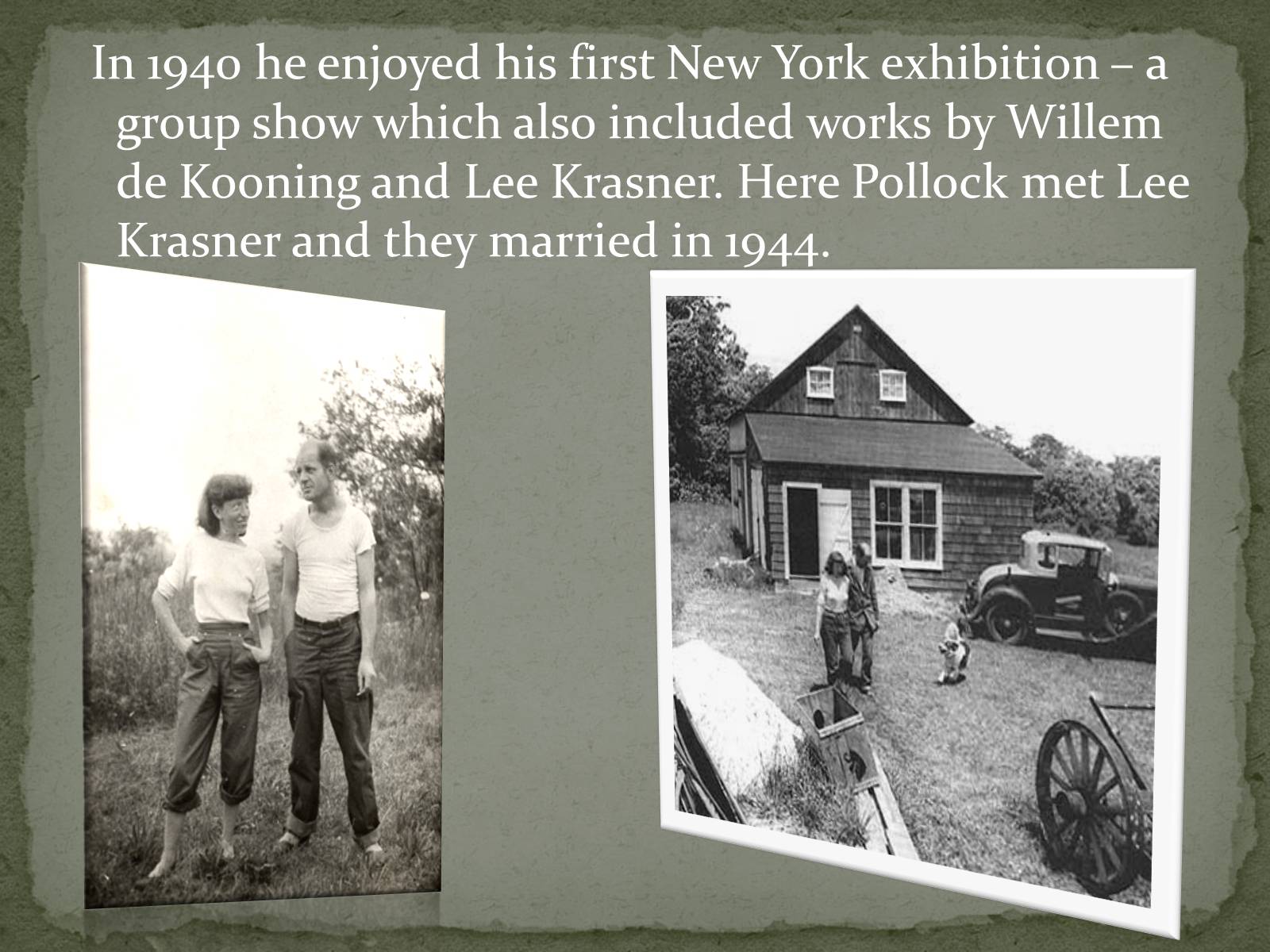
Слайд #6
Here, in his studio, after several years of psychotherapy, Pollock began to lay his canvas on the floor and pour, drip or splatter paint onto it in stages. The results were huge areas covered with complex and dynamic patterns.
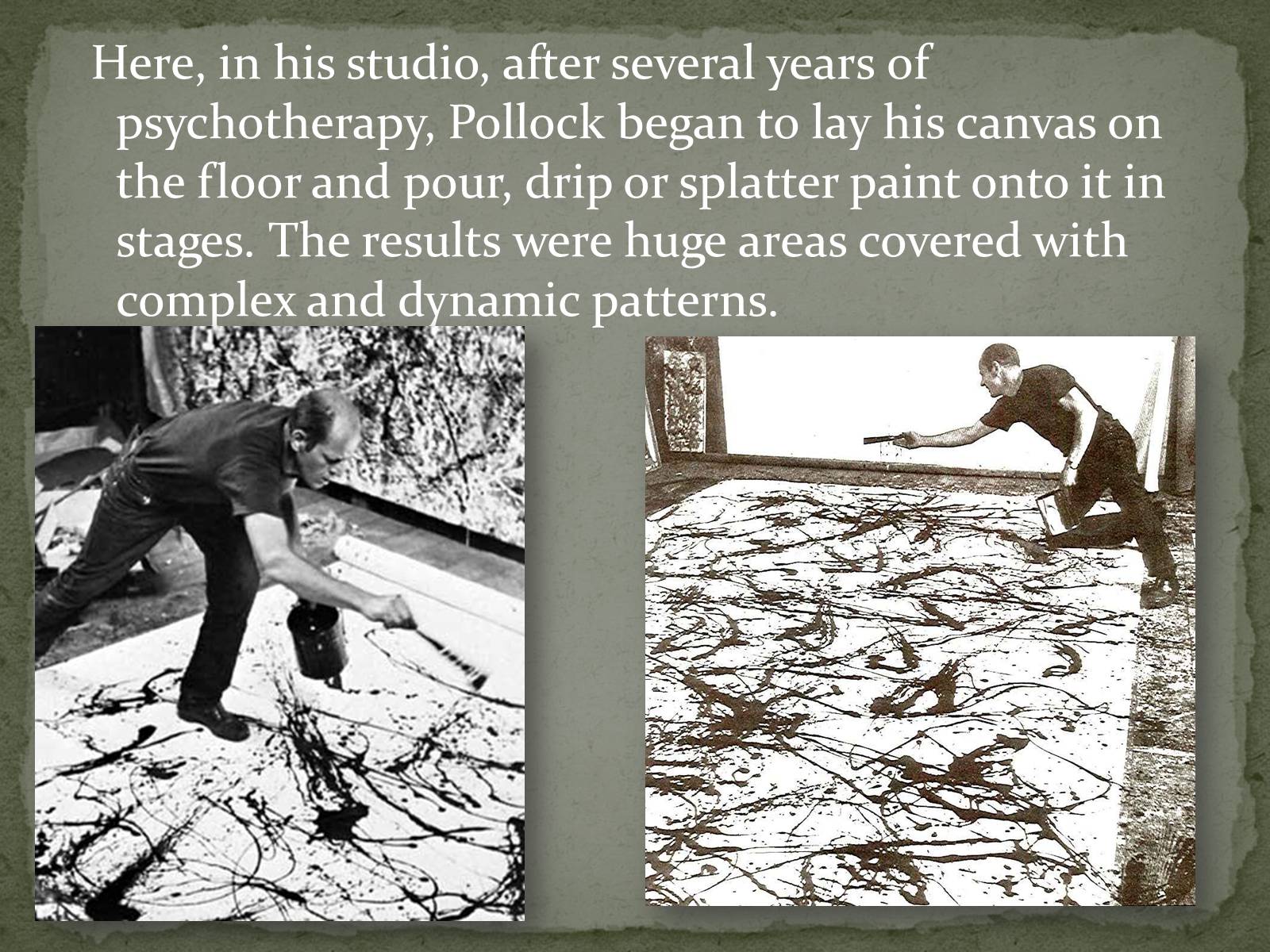
Слайд #7
The floor in Pollock's studio.
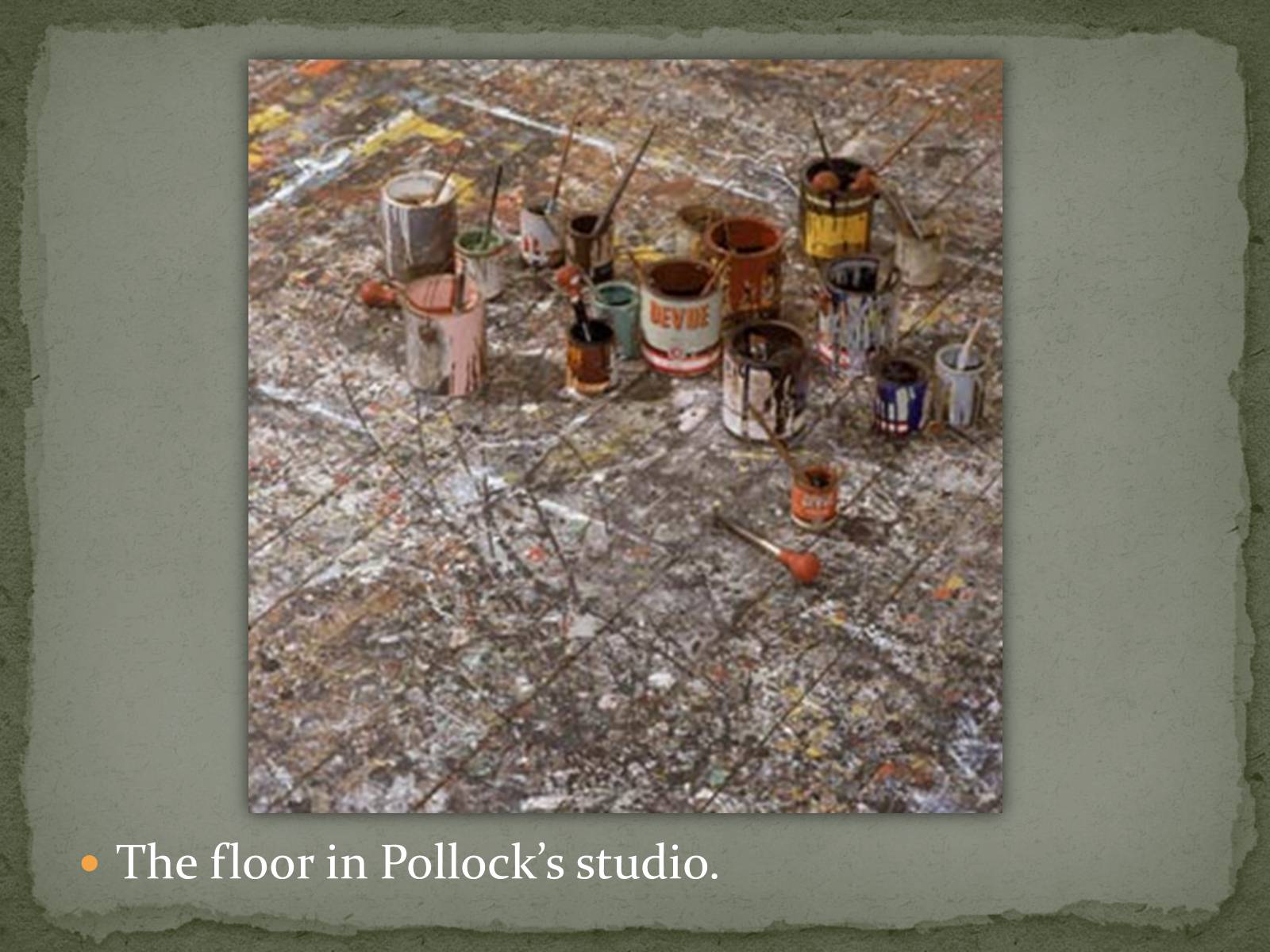
Слайд #8
The floor in Pollock's studio.
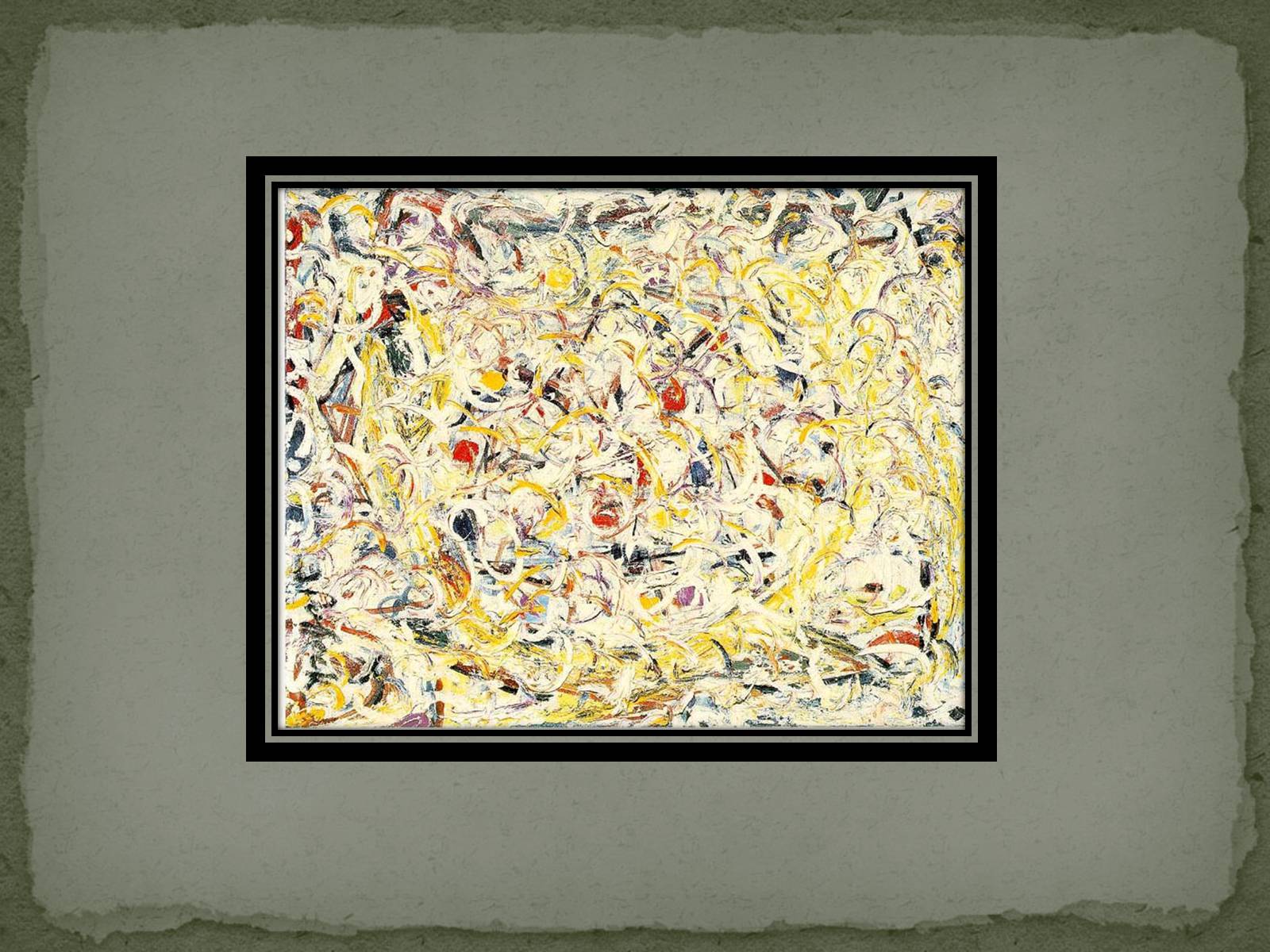
Слайд #9
The floor in Pollock's studio.

Слайд #10
So Pollock developed a new style of painting for which he became famous, later called as “unconscious imagery” or “action painting”. He worked from all sides of his painting, walking across or through it splattering the paint spontaneously.
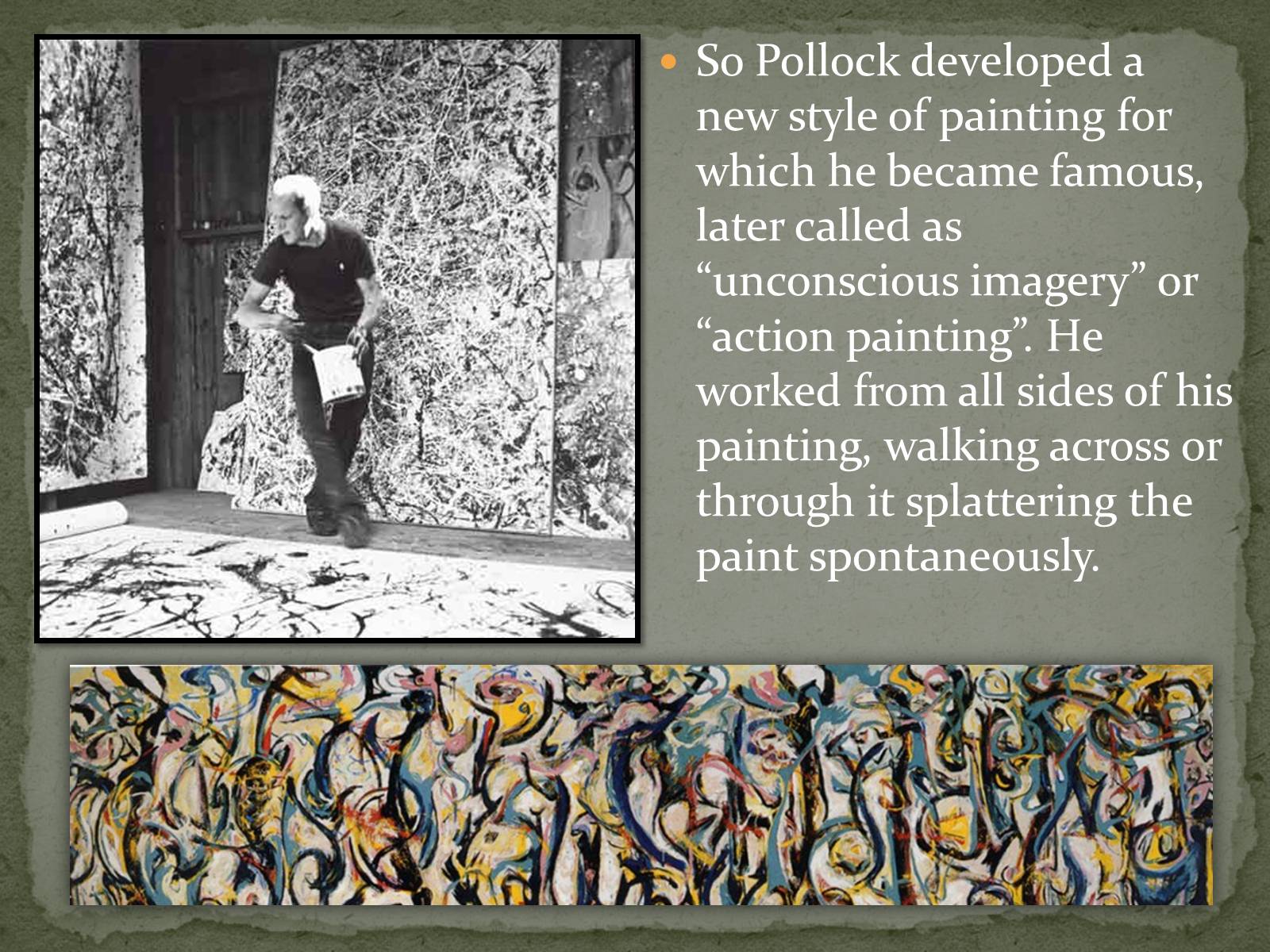
Слайд #11
“When I am in my painting, I'm not aware of what I'm doing. I have no fear about making changes, destroying the image, etc. because the painting has a life of its own. When I lose contact with the painting, he result is a mess. Otherwise here is a pure harmony”.
Jackson Pollock.
Jackson Pollock.
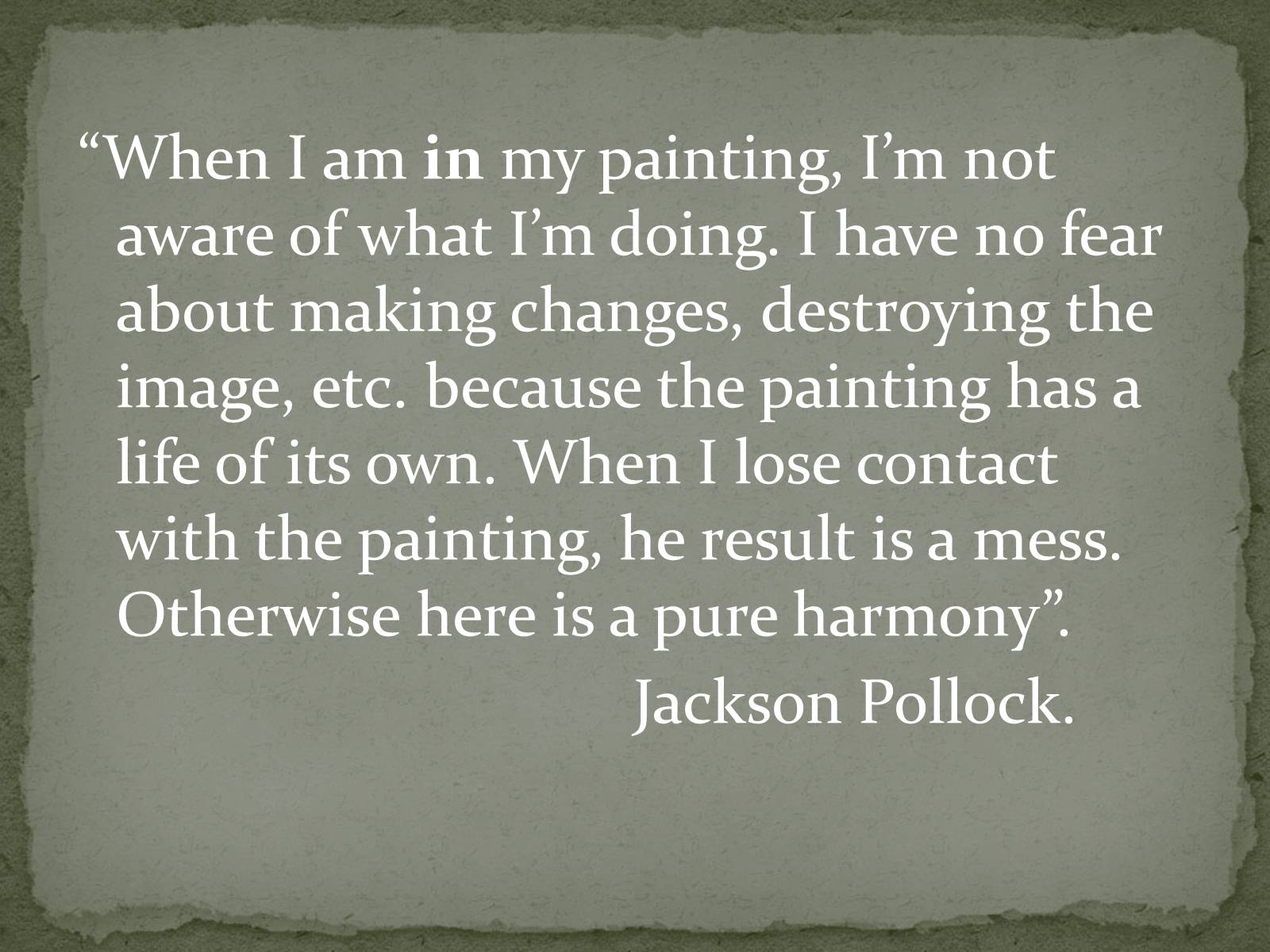
Слайд #12
“When I am in my painting, I'm not aware of what I'm doing. I have no fear about making changes, destroying the image, etc. because the painting has a life of its own. When I lose contact with the painting, he result is a mess. Otherwise here is a pure harmony”.
Jackson Pollock.
Jackson Pollock.
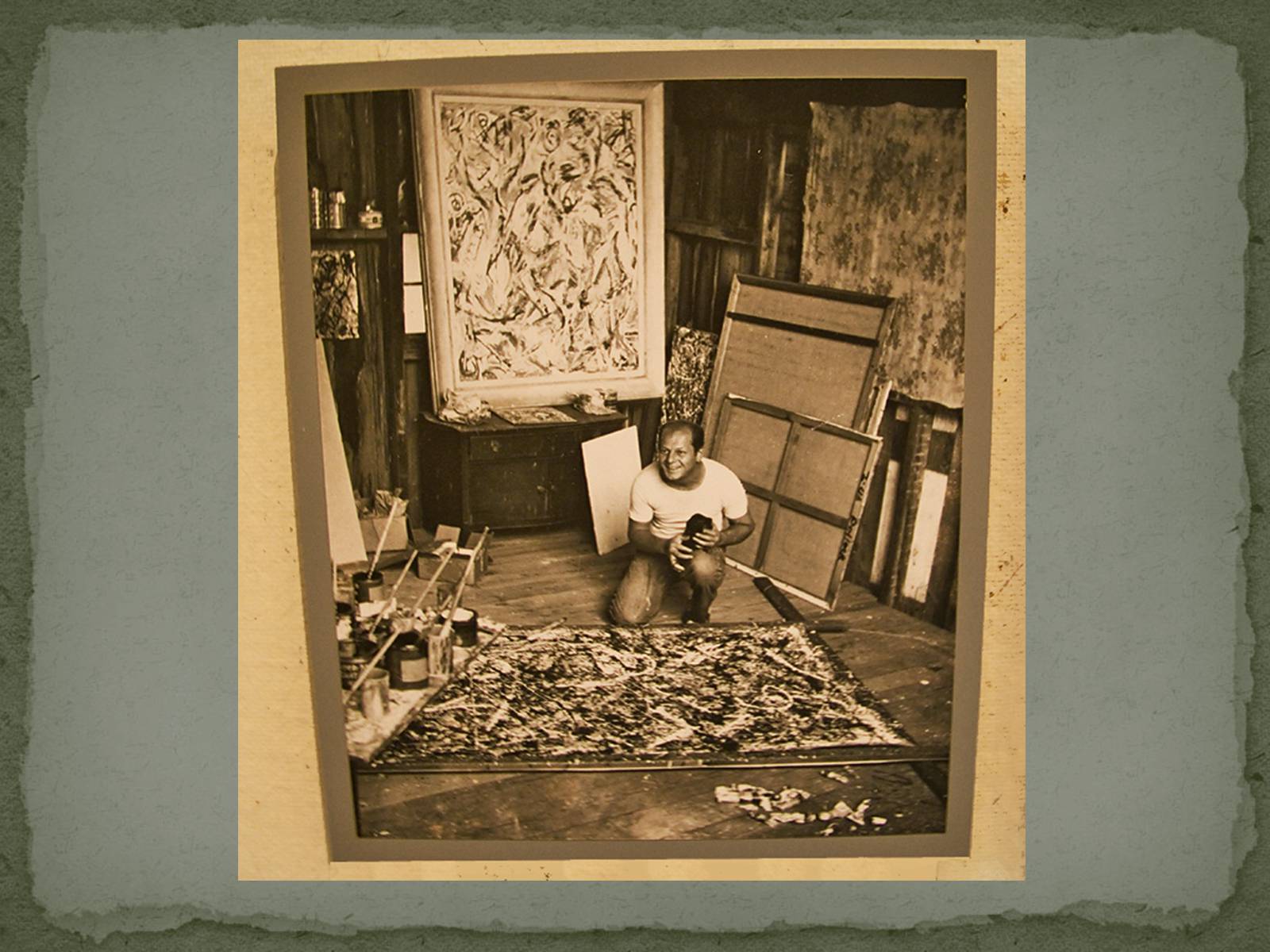
Слайд #13
“When I am in my painting, I'm not aware of what I'm doing. I have no fear about making changes, destroying the image, etc. because the painting has a life of its own. When I lose contact with the painting, he result is a mess. Otherwise here is a pure harmony”.
Jackson Pollock.
Jackson Pollock.
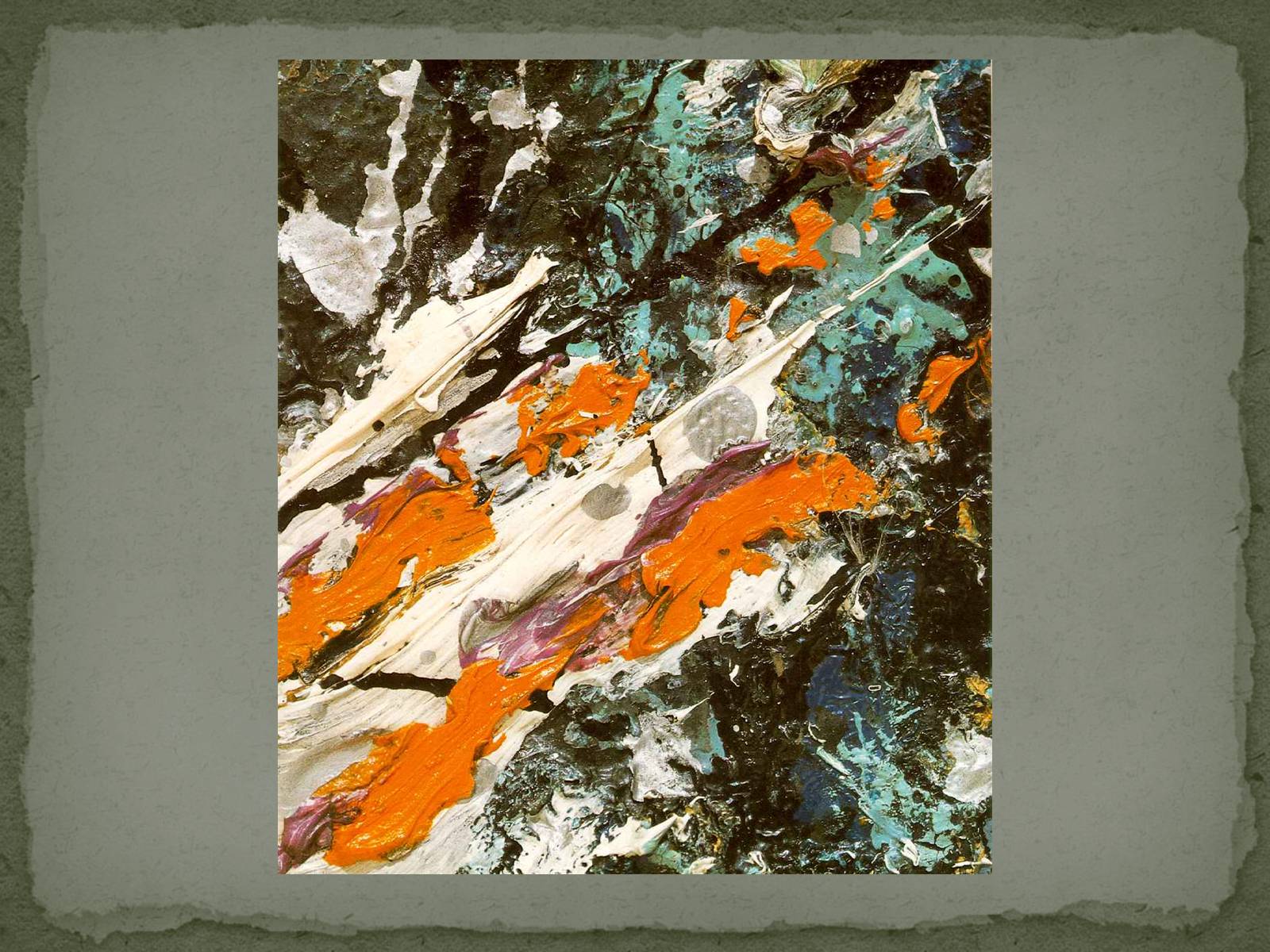
Слайд #14
“When I am in my painting, I'm not aware of what I'm doing. I have no fear about making changes, destroying the image, etc. because the painting has a life of its own. When I lose contact with the painting, he result is a mess. Otherwise here is a pure harmony”.
Jackson Pollock.
Jackson Pollock.
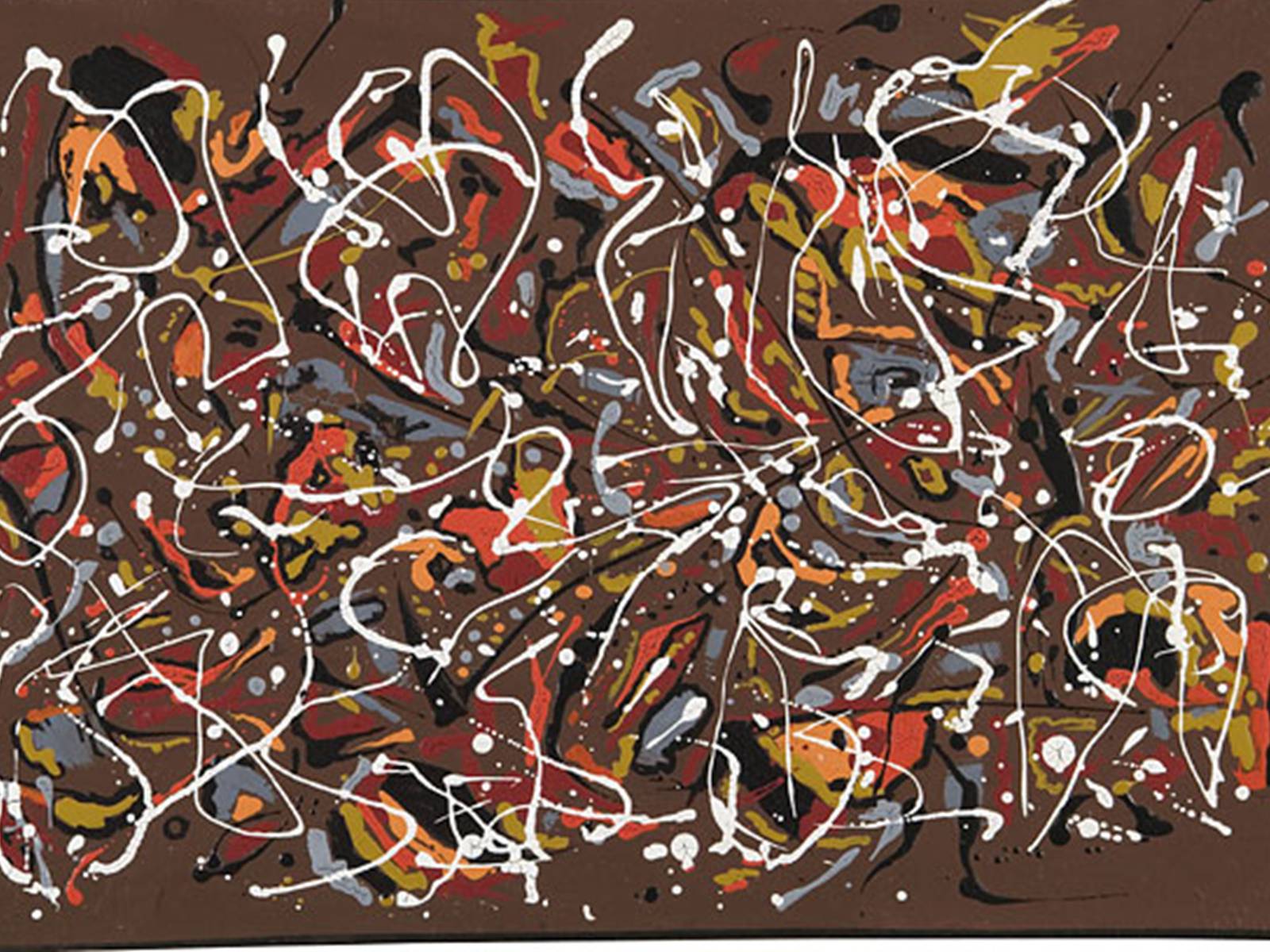
Слайд #15
In the process of making paintings in this way, he moved away from representing figures. He also moved away from the use of only the hand and wrist, since he used his whole body to paint. In 1956 “Time” magazine called Pollock “Jack the Dripper” as a result of his unique painting style.
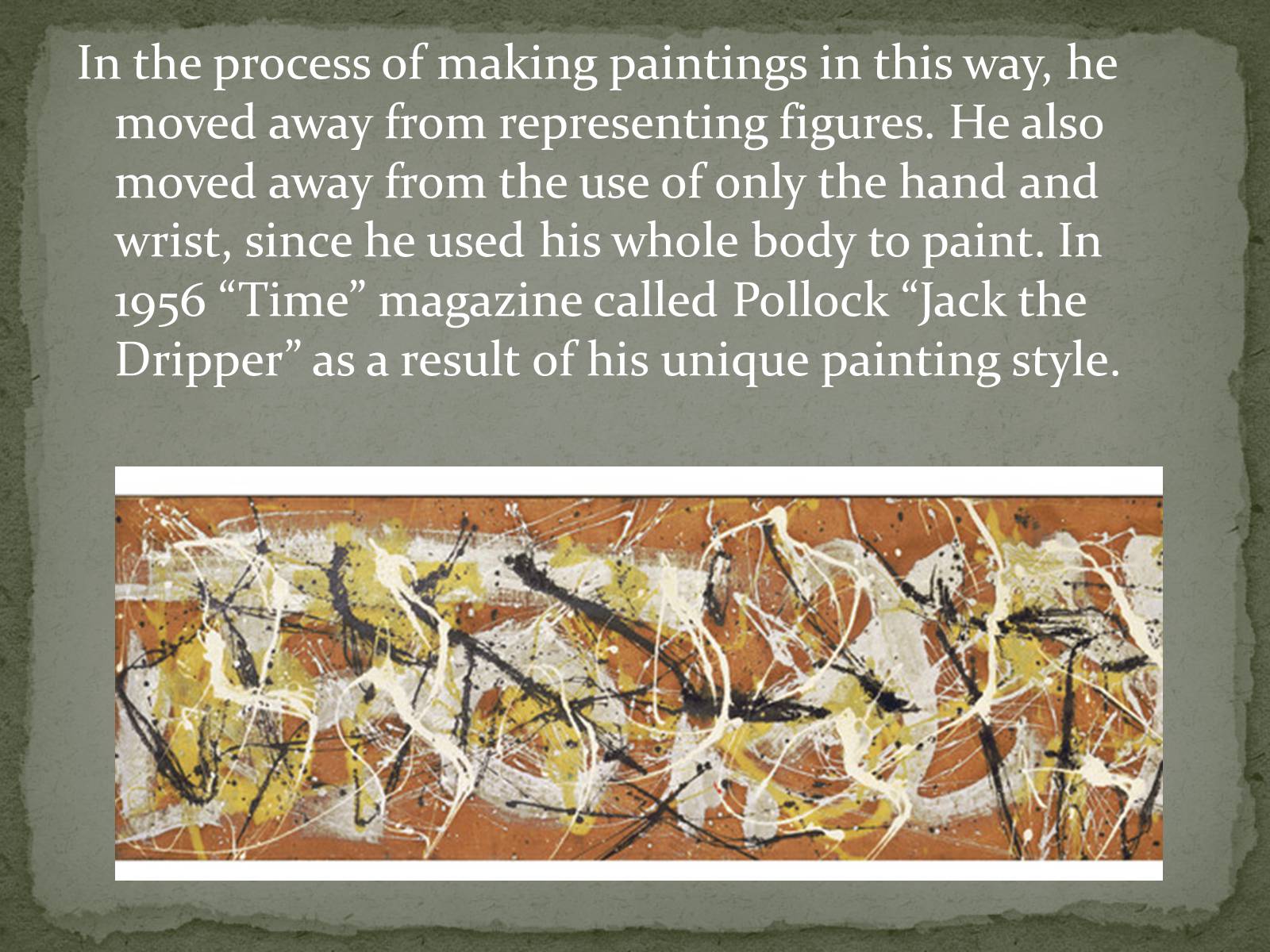
Слайд #16
“On the floor I'm more at ease. I feel nearer, more part of the painting, since this way I can walk around it, work from the four sides and be in the painting”.
J.Pollock.
J.Pollock.
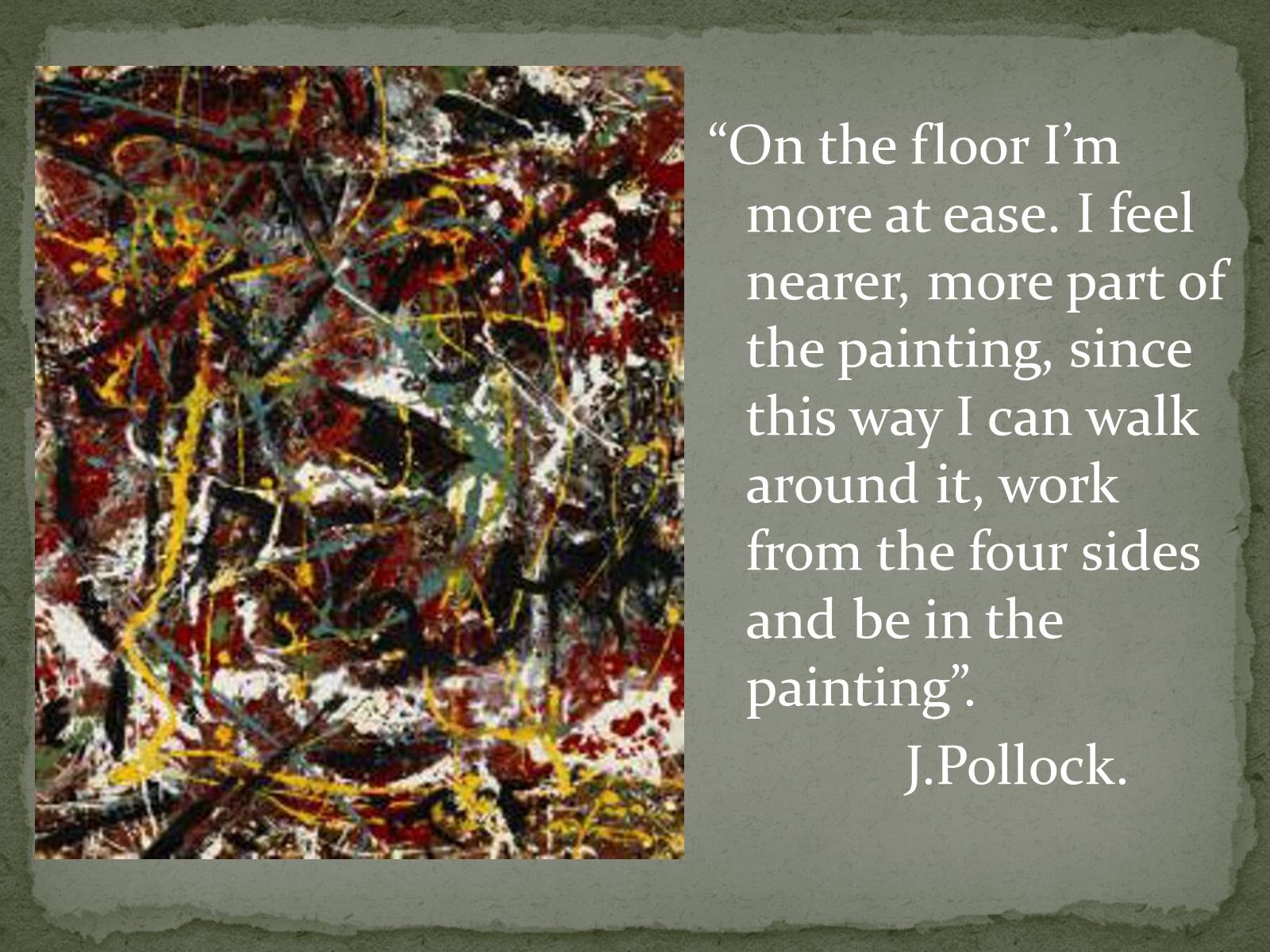
Слайд #17
“On the floor I'm more at ease. I feel nearer, more part of the painting, since this way I can walk around it, work from the four sides and be in the painting”.
J.Pollock.
J.Pollock.
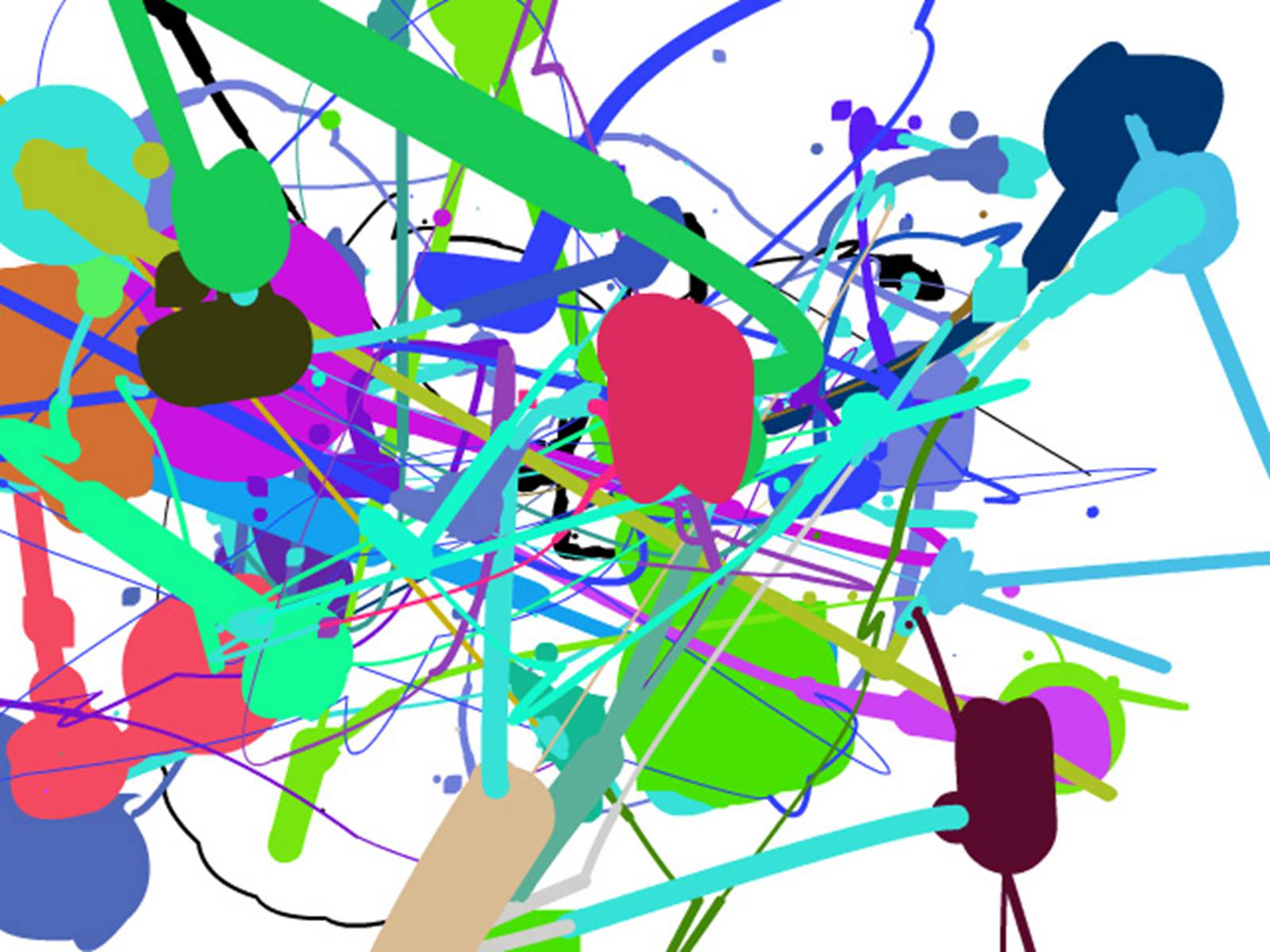
Слайд #18
Pollock wanted to end the view's search for representational elements and started numbering his works instead of titling them.
“Numbers are neutral. They make people look at a picture for what it is – pure painting”.
“Numbers are neutral. They make people look at a picture for what it is – pure painting”.
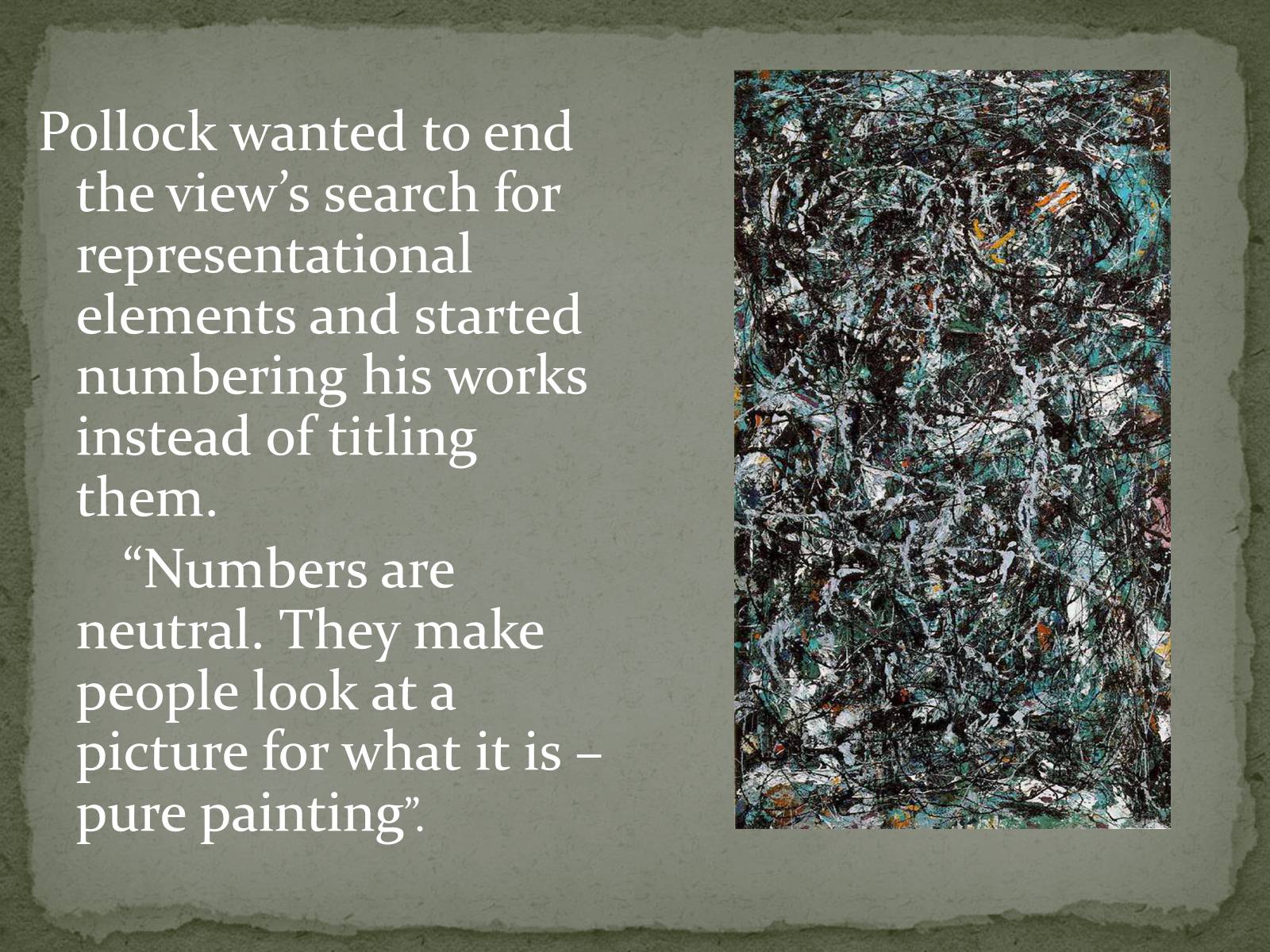
Слайд #19
Pollock became known as a leading practitioner and a celebrity of Abstract Expressionism. When he died in a car crash at 44, he was one of the few American painters to be recognized during his lifetime and afterward as the peer of 20th century European masters of modern art.
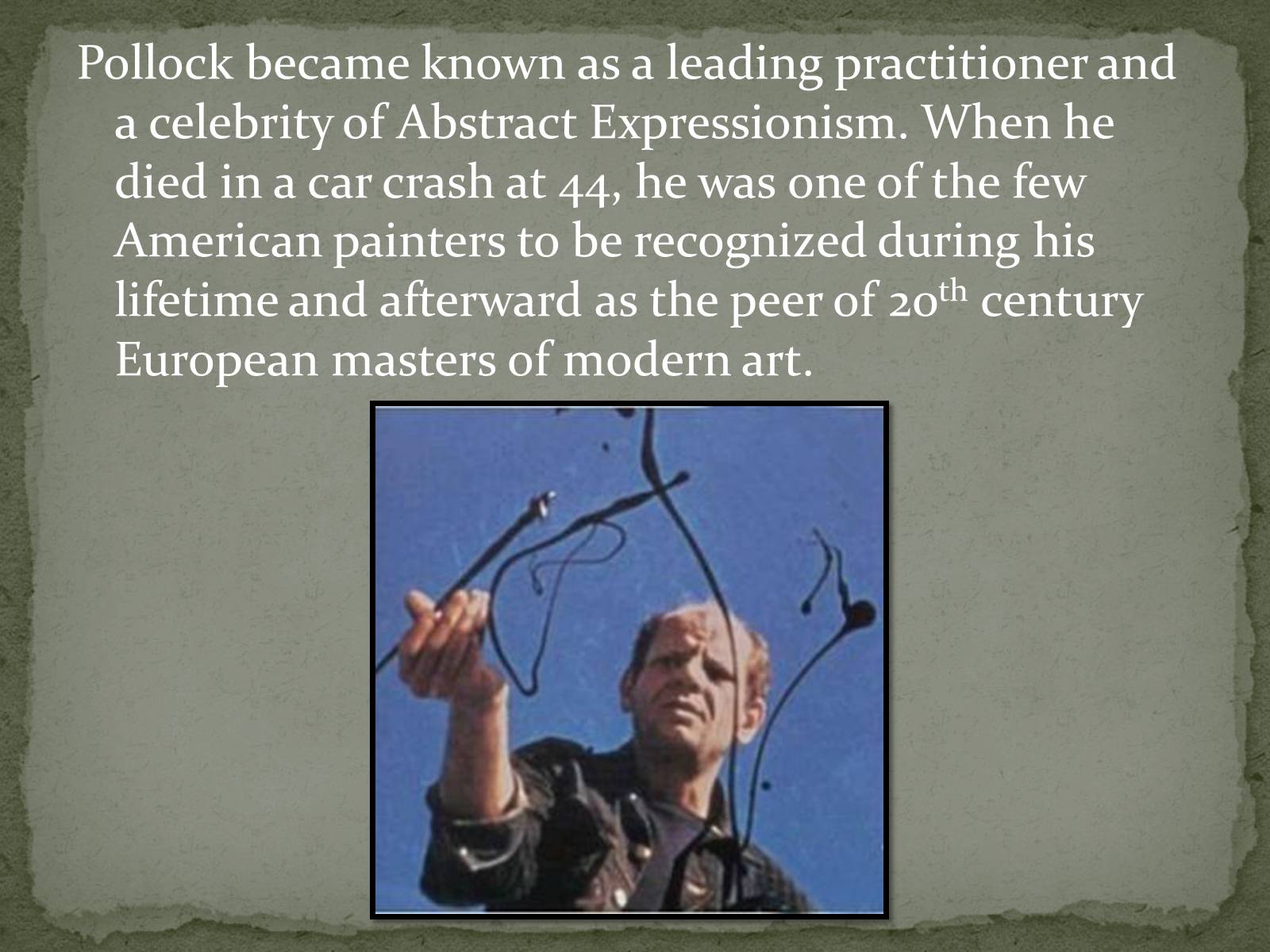
Слайд #20
Pollock became known as a leading practitioner and a celebrity of Abstract Expressionism. When he died in a car crash at 44, he was one of the few American painters to be recognized during his lifetime and afterward as the peer of 20th century European masters of modern art.
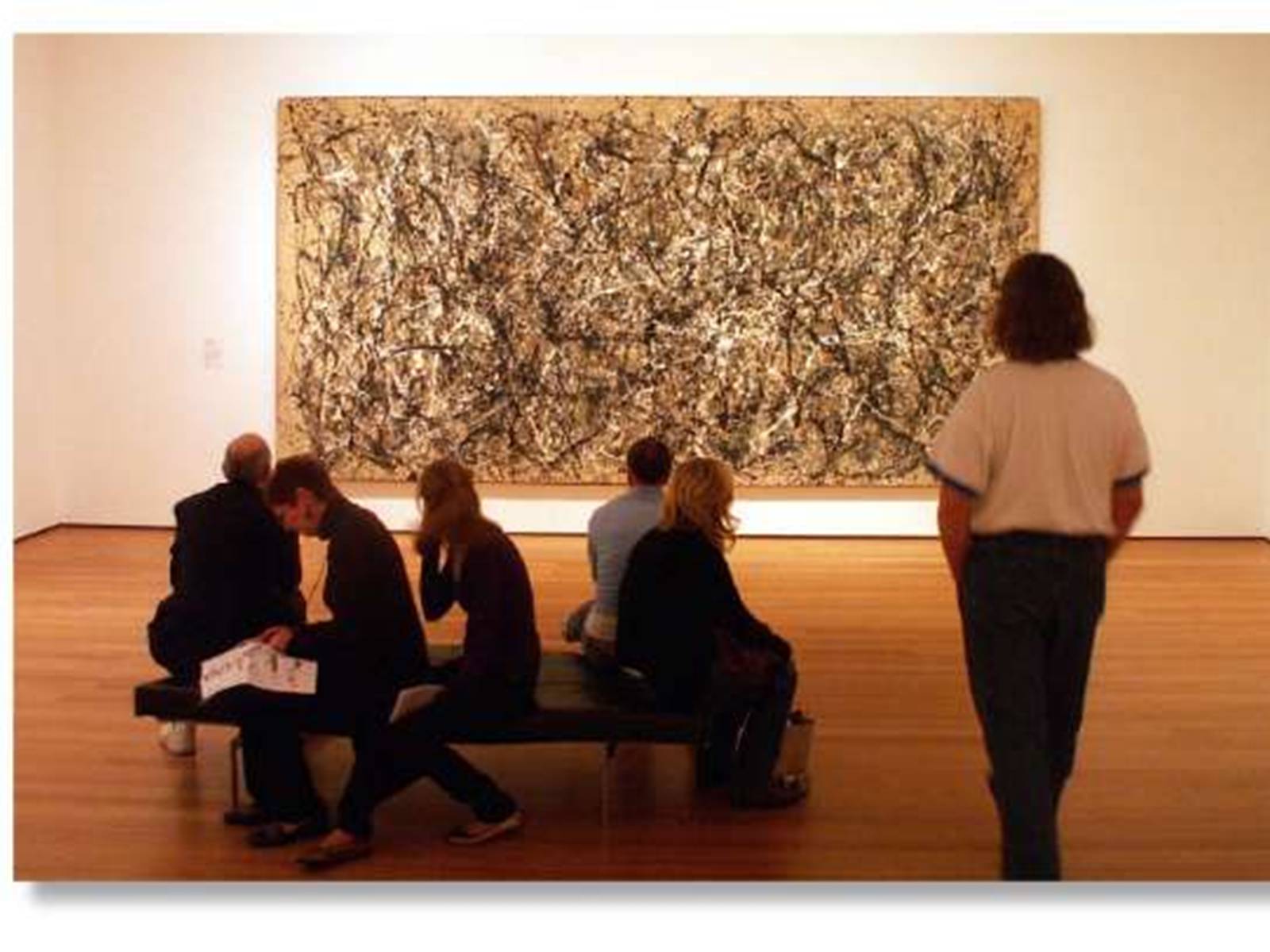
Слайд #21
Actor Ed Harris directed and in starred in the 2000 movie about the painter.
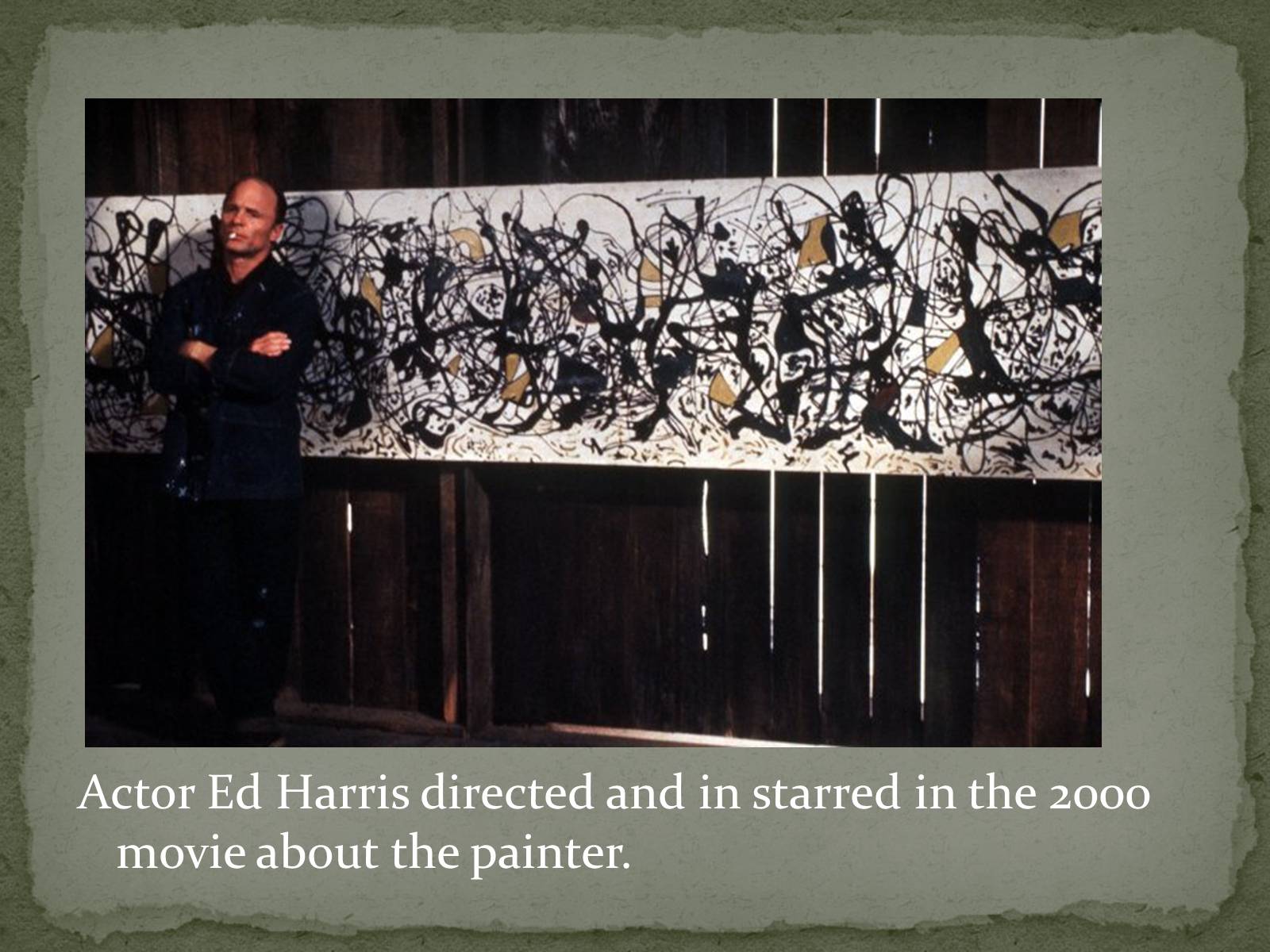
Слайд #22
In 2006 Pollock's No.5,1948 was sold for a record 140 million dollars.
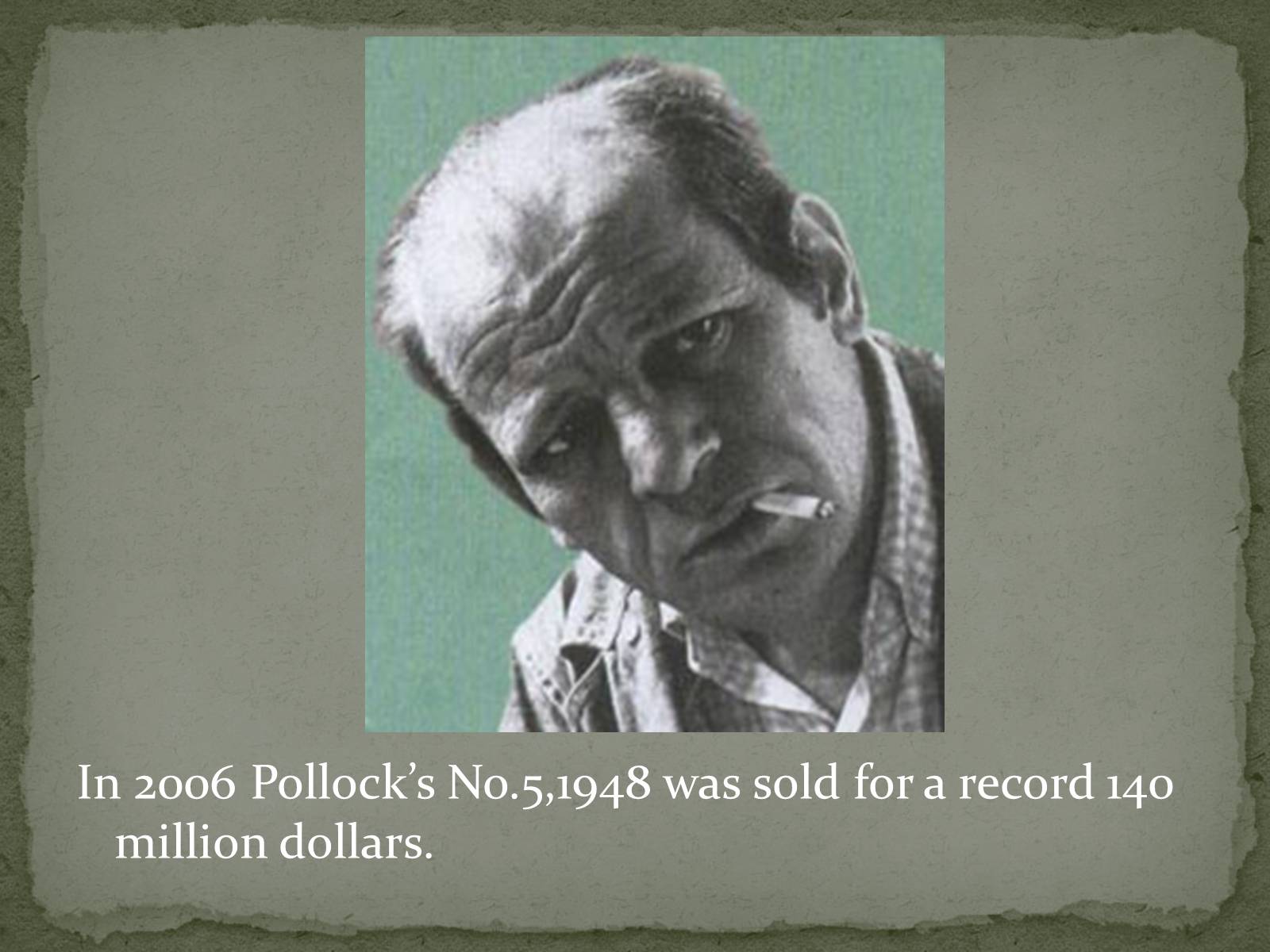
Слайд #23
THE END
